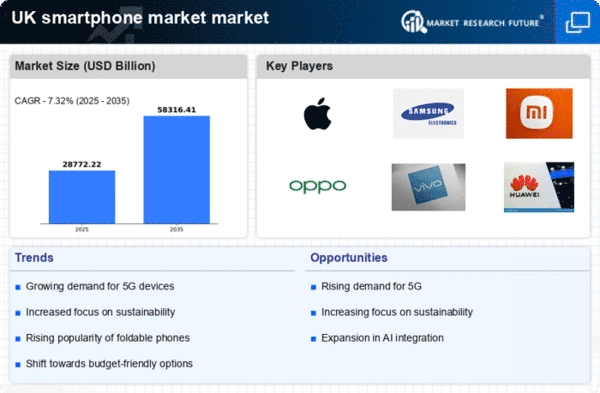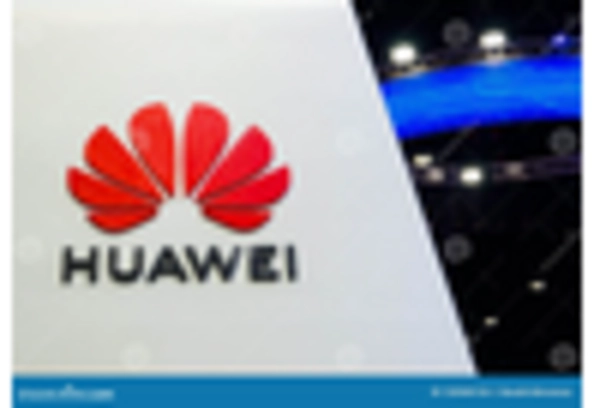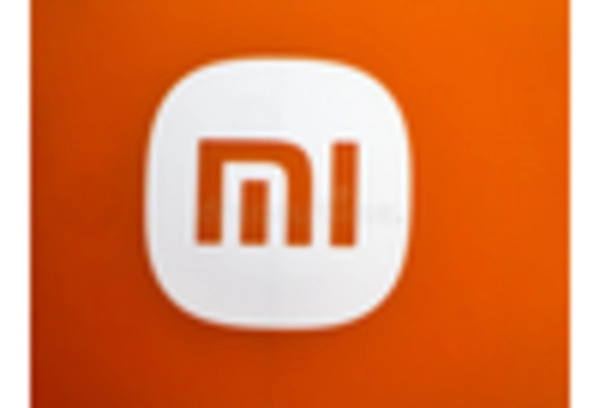Growing Demand for Mobile Applications
The smartphone Market is witnessing a growing demand for mobile applications, which is driving the need for more advanced devices. As users increasingly rely on smartphones for various tasks, from banking to entertainment, the necessity for high-performance devices becomes evident. In the UK, the app economy is projected to reach £20 billion by 2025, indicating a robust market for mobile applications. This growth compels manufacturers to enhance their devices' capabilities, ensuring they can support a wide range of applications efficiently. Consequently, the smartphone Market is evolving to meet these demands, with a focus on optimizing user experience through improved hardware and software integration.
Shift Towards Subscription-Based Models
The smartphone Market is experiencing a notable shift towards subscription-based models, which is altering consumer purchasing behavior. This trend allows users to access the latest devices without the burden of upfront costs, making high-end smartphones more accessible. In the UK, approximately 30% of consumers are now opting for subscription plans, which often include device upgrades and additional services. This shift not only impacts sales strategies for manufacturers but also encourages innovation, as companies strive to offer compelling subscription packages. As this model gains traction, the smartphone Market may see a transformation in how devices are marketed and sold.
Expansion of E-commerce and Online Retail
The smartphone Market is benefiting from the expansion of e-commerce and online retail, which has transformed how consumers shop for devices. With the increasing prevalence of online shopping, consumers are more inclined to purchase smartphones through digital platforms. In the UK, e-commerce sales in the electronics sector are projected to grow by 15% annually, indicating a shift in consumer behavior. This trend encourages manufacturers to enhance their online presence and offer competitive pricing strategies. As the smartphone Market adapts to this evolving landscape, the integration of seamless online shopping experiences will likely become a key focus for brands aiming to capture a larger share of the market.
Increased Focus on Data Privacy and Security
The smartphone Market is increasingly prioritizing data privacy and security, reflecting growing consumer concerns over personal information protection. With rising incidents of data breaches, manufacturers are compelled to enhance security features in their devices. In the UK, around 70% of smartphone users express concerns about data privacy, prompting companies to implement advanced encryption and biometric authentication methods. This focus on security not only influences consumer trust but also shapes product development strategies within the smartphone Market. As users become more aware of privacy issues, the demand for secure devices is likely to rise, driving innovation in this area.
Technological Advancements in Mobile Hardware
The smartphone Market is currently experiencing rapid technological advancements in mobile hardware, which significantly influences consumer purchasing decisions. Innovations such as improved processors, enhanced camera capabilities, and longer battery life are becoming standard features. For instance, the introduction of 5G technology has led to a surge in demand, with 5G-enabled devices accounting for approximately 40% of total smartphone sales in the UK. This trend indicates that consumers are increasingly seeking devices that offer superior performance and connectivity. As manufacturers continue to invest in research and development, the smartphone Market is likely to see further enhancements that could reshape user experiences and expectations.















